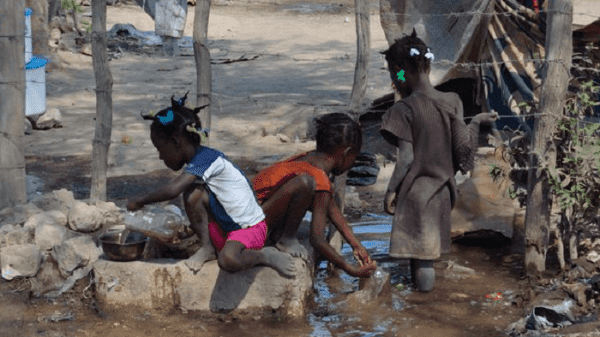
A UNICEF official lamented that "our efforts to provide more safe drinking water are not enough." | Photo: Digital
United Nations, September 5 (RHC)-- More than half a million Haitian children, residents of areas affected by the earthquake of last August 14, are threatened by the possibility of contracting waterborne diseases due to the reduction of drinking water sources, warned the United Nations Children's Fund, UNICEF.
According to a report issued in New York, 540,000 infants are at high risk of acquiring diarrheal diseases, acute respiratory infections, cholera and malaria. UNICEF's representative in Haiti, Bruno Maes, warned that "cholera has not been reported in Haiti since February 2019, however, without urgent and firm action, the resurgence of cholera and other waterborne diseases is a real threat that is increasing by the day."
"The lives of thousands of earthquake-affected children, adolescents and families are now at risk, just because they do not have access to safe water, sanitation and hygiene," Maes detailed.
After the earthquake, more than 60 percent of the population of the three most affected departments were left without access to drinking water, and others, due to the collapse of their homes, lacked sanitation services.
UNICEF is working with the National Water and Sanitation Directorate to help improve the situation. More than 35,200 people have benefited from the distribution of some 7,000 hygiene kits.
In addition, he highlighted that they have sent more than 65,000 water purification tablets, 41 cisterns, three water treatment units. "Our efforts to provide more drinking water are not enough in the face of the serious needs in all the affected areas," said Maes.

